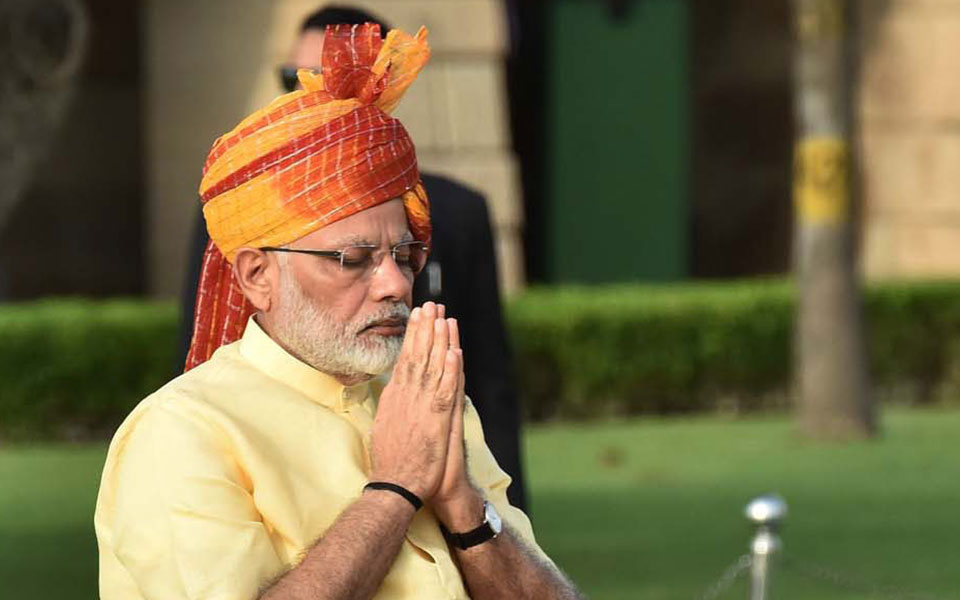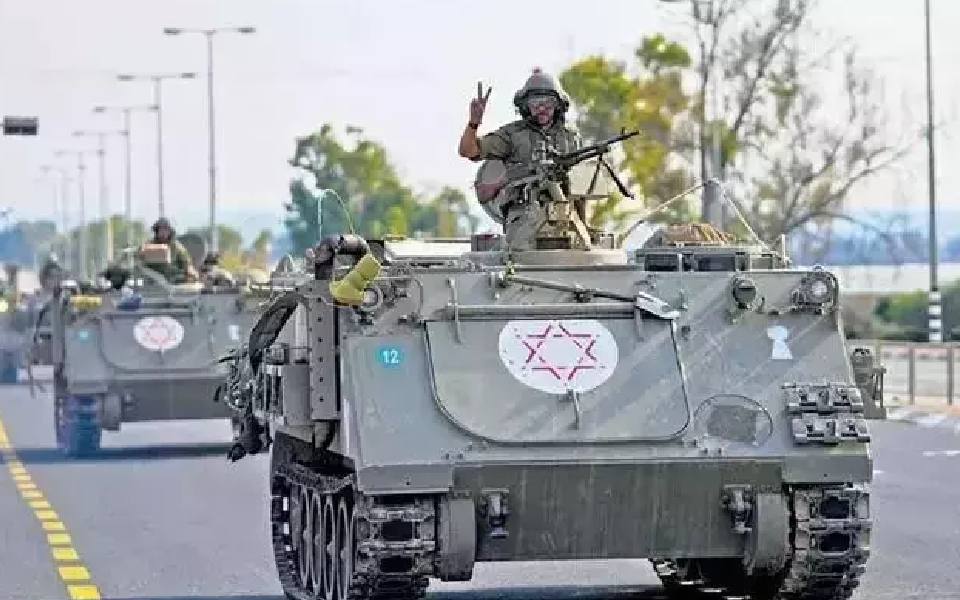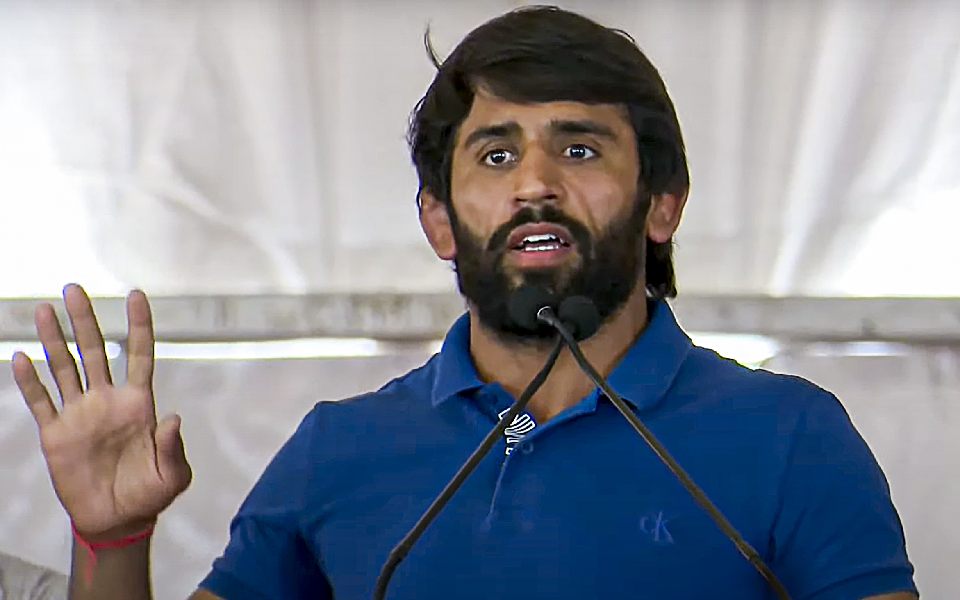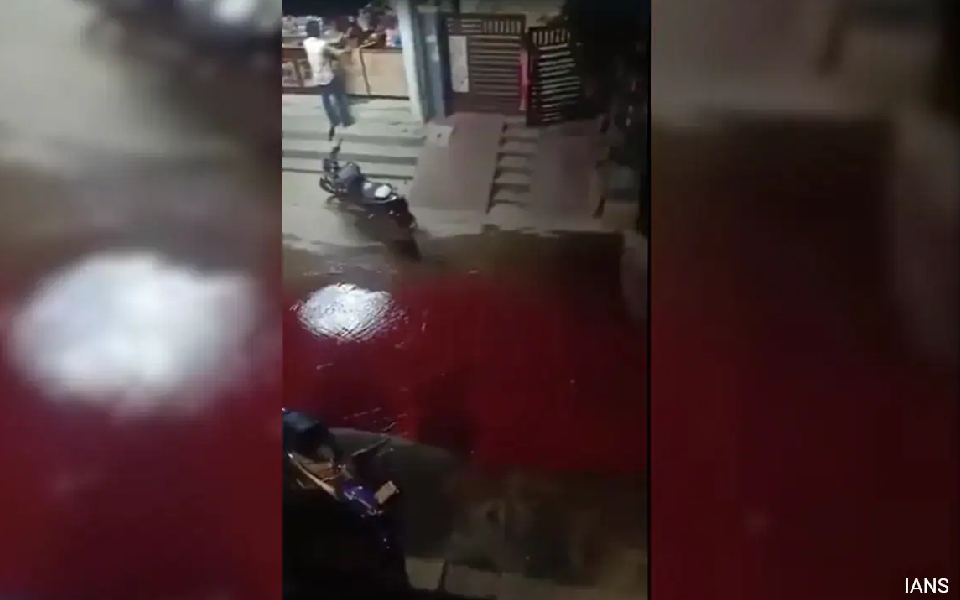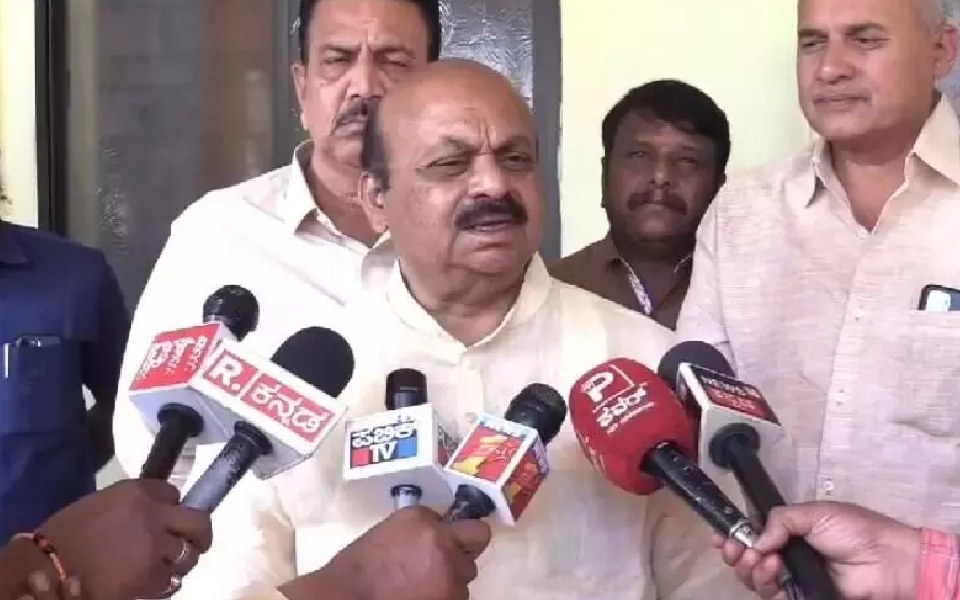Bhilai, June 14: Development is the only and best answer to every form of violence, Prime Minister Narendra Modi said here on Thursday as he inaugurated projects for Chhattisgarh worth Rs 22,000 crore.
"The mention of Bastar used to invoke images of guns, bombs and violence. Today, this region is known for Jagdalpur airport. I believe that to every form of violence there is only one reply and it is development," he said in his address to a gathering after flagging off the first flight between Jagdalpur and Chhattisgarh capital Raipur.
In the region where the previous governments did not dare to build even roads, the Bharatiya Janata Party (BJP) governments of the Centre and the state have built an airport.
"Now, the travel time between Raipur and Jagdalpur will be shortened to just 40 minutes from the earlier 6-7 hours. Thanks to the policies of our government, today more people are flying than those travelling in trains' AC coaches," Modi said.
He said the increased connectivity will attract industry, give a boost to employment and as a result will generate more employment.
Earlier, Modi also dedicated the modernised and expanded Bhilai Steel Plant to the nation and distributed laptops and cheques to beneficiaries.
He said peace, stability and law and order were the prerequisite for development and the BJP government in Chhattisgarh led by Chief Minister Raman Singh had provided that and embarked the state on the path of progress.
"Raman Singh, with his hard work, has taken further the vision of (former Prime Minister) Atalji (Bihari Vajpayee), which gives us pleasure. The state is moving ahead with pace on the paths pf development," he said.
The Prime Minister said his government altered the laws to make sure a certain part of the income from the minerals extracted from Chhattisgarh is spent on the welfare of the people including the Adivasis.
Targetting the political rivals, Modi, who is on a day-long visit to the state, said the previous Congress-led UPA government did not approve the project of an Indian Institute of Technology (IIT) in Bhilai as mooted by the Raman Singh government, but "today, we have laid the foundation stone of an IIT campus in Bhilai".
Also inaugurating the Integrated Command and Control Centre at Naya Raipur Smart City, he also unveiled a plaque to mark the commencement of phase-2 of BharatNet.A
He later visited Blast Furnace-8 at the Bhilai Steel Plant, and was briefed on various aspects of the Plant. People lined the streets of Bhilai to greet the Prime Minister.
The second Prime Minister to visit the Bhilai Steel Plant after Pandit Jawaharlal Nehru, who last visited it in 1963, Modi said that the Plant has contributed in a big way to nation-building. He said the modernized and expanded plant would be instrumental in building a strong foundation for New India.
He also spoke of the benefits that the other development projects launched would bring about.
The Prime Minister said that in the last two months, the Gram Swaraj Abhiyan has had a very positive effect.
"This Abhiyan (mission) is being pursued vigorously in the 115 Aspirational Districts, out of which 12 districts are in Chhattisgarh," he said mentioning about the benefit that schemes such as Jan Dhan Yojana, Mudra Yojana, Ujjwala Yojana, Fasal Bima Yojana and Saubhagya have brought about in the State.
Modi said that keeping in mind the interests of the tribal population, the Forest Rights Act is being strictly implemented. He said the government is working for the welfare of tribals and Eklavya Vidyalayas are being established across the country.
Raman Singh on the occasion slammed the Congress-led UPA government for delaying proposal of establishment of IIT at Bhilai.
"During UPA, I requested for IIT Bhilai many a time but was not approved. When Modiji became Prime Minister, I met him and he immediately agreed for it. Ho told me to go and announce it's establishment," Singh said amid chants of Modi-Modi.
Let the Truth be known. If you read VB and like VB, please be a VB Supporter and Help us deliver the Truth to one and all.
Beirut, Nov 26: Israeli Prime Minister Benjamin Netanyahu said Tuesday that he would recommend his cabinet adopt a United States-brokered ceasefire agreement with Lebanon's Hezbollah, as Israeli warplanes struck across Lebanon, killing at least 23 people.
The Israeli military also issued a flurry of evacuation warnings — a sign it was aiming to inflict punishment on Hezbollah down to the final moments before any ceasefire takes hold. For the first time in the conflict, Israeli ground troops reached parts of Lebanon's Litani River, a focal point of the emerging deal.
In a televised statement, Netanyahu said he would present the ceasefire to Cabinet ministers later on Tuesday, setting the stage for an end to nearly 14 months of fighting.
Netanyahu said the vote was expected later Tuesday. It was not immediately clear when the ceasefire would go into effect, and the exact terms of the deal were not released. The deal does not affect Israel's war against Hamas in Gaza, which shows no signs of ending.
The evacuation warnings covered many areas, including parts of Beirut that previously have not been targeted. The warnings, coupled with fear that Israel was ratcheting up attacks before a ceasefire, sent residents fleeing. Traffic was gridlocked, and some cars had mattresses tied to them. Dozens of people, some wearing their pajamas, gathered in a central square, huddling under blankets or standing around fires as Israeli drones buzzed loudly overhead.
Hezbollah, meanwhile, kept up its rocket fire, triggering air raid sirens across northern Israel.
Lebanese officials have said Hezbollah also supports the deal. If approved by all sides, the deal would be a major step toward ending the Israel-Hezbollah war that has inflamed tensions across the region and raised fears of an even wider conflict between Israel and Hezbollah's patron, Iran.
The deal calls for a two-month initial halt in fighting and would require Hezbollah to end its armed presence in a broad swath of southern Lebanon, while Israeli troops would return to their side of the border. Thousands of Lebanese troops and UN peacekeepers would deploy in the south, and an international panel headed by the United States would monitor all sides' compliance.
But implementation remains a major question mark. Israel has demanded the right to act should Hezbollah violate its obligations. Lebanese officials have rejected writing that into the proposal. Israel's Defense Minister Israel Katz insisted on Tuesday that the military would strike Hezbollah if the U.N. peacekeeping force, known as UNIFIL, doesn't provide “effective enforcement” of the deal.
“If you don't act, we will act, and with great force,” Katz said, speaking with UN special envoy Jeanine Hennis-Plasschaert.
The European Union's top diplomat, Josep Borrell, said Tuesday that Israel's security concerns had been addressed in the deal also brokered by France.
“There is not an excuse for not implementing a ceasefire. Otherwise, Lebanon will fall apart,” Borrell told reporters in Italy on the sidelines of a Group of Seven meeting. He said France would participate on the ceasefire implementation committee at Lebanon's request.
Bombardment of Beirut's southern suburbs continues
Even as Israeli, US, Lebanese and international officials have expressed growing optimism over a ceasefire, Israel has continued its campaign in Lebanon, which it says aims to cripple Hezbollah's military capabilities.
An Israeli strike on Tuesday levelled a residential building in the central Beirut district of Basta — the second time in recent days warplanes have hit the crowded area near the city's downtown. At least seven people were killed and 37 wounded, according to Lebanon's Health Ministry.
Three people were killed in a separate strike in Beirut and three in a strike on a Palestinian refugee camp in southern Lebanon. Lebanese state media said another 10 people were killed in the eastern Baalbek province. Israel says it targets Hezbollah fighters and their infrastructure.
Earlier, Israeli jets struck at least six buildings in Beirut's southern suburbs. One strike slammed near the country's only airport, sending plumes of smoke into the sky. The airport has continued to function despite its location on the Mediterranean coast next to the densely populated suburbs where many of Hezbollah's operations are based.
Israeli military spokesman Avichay Adraee issued evacuation warnings for 20 buildings in the suburbs, as well as a warning for the southern town of Naqoura where UNIFIL is headquartered.
UNIFIL spokesperson Andrea Tenenti told The Associated Press that peacekeepers will not evacuate.
Other strikes hit in the southern city of Tyre, where the Israeli military said it killed a local Hezbollah commander.
The Israeli military also said its ground troops clashed with Hezbollah forces and destroyed rocket launchers in the Slouqi area on the eastern end of the Litani River, a few kilometres from the Israeli border.
Previous ceasefire hopes were dashed
Under the ceasefire deal, Hezbollah would be required to move its forces north of the Litani, which in some places is about 30 kilometers (20 miles) north of the border.
A ceasefire between Israel and Hezbollah, the strongest Iranian-backed force in the region, would likely significantly calm regional tensions that have led to fears of a direct, all-out war between Israel and Iran. It's not clear how the ceasefire will affect the Israel-Hamas war in Gaza. Hezbollah had long insisted that it would not agree to a ceasefire until the war in Gaza ends, but it dropped that condition.
Hezbollah began firing into northern Israel, saying it was showing support for the Palestinians, a day after Hamas carried out its Oct. 7, 2023, attack on southern Israel, triggering the Gaza war. Israel returned fire on Hezbollah, and the two sides have been exchanging barrages ever since.
Israel escalated its campaign of bombardment in mid-September and later sent troops into Lebanon, vowing to put an end to Hezbollah fire so tens of thousands of evacuated Israelis could return to their homes.
More than 3,760 people have been killed by Israeli fire in Lebanon the past 13 months, many of them civilians, according to Lebanese health officials. The bombardment has driven 1.2 million people from their homes. Israel says it has killed more than 2,000 Hezbollah members.
Hezbollah fire has forced some 50,000 Israelis to evacuate in the country's north, and its rockets have reached as far south in Israel as Tel Aviv. At least 75 people have been killed, more than half of them civilians. More than 50 Israeli soldiers have died in the ground offensive in Lebanon.
After previous hopes for a ceasefire were dashed, U.S. officials cautioned that negotiations were not yet complete and noted there could be last-minute hitches that delay or destroy an agreement.
“Nothing is done until everything is done,” White House national security spokesman John Kirby said.
While the ceasefire proposal is expected to be approved if Netanyahu brings it to a vote in his security Cabinet, one hard-line member, National Security Minister Itamar Ben-Gvir, said he would oppose it. He said on X that a deal with Lebanon would be a “big mistake” and a “missed historic opportunity to eradicate Hezbollah.”

